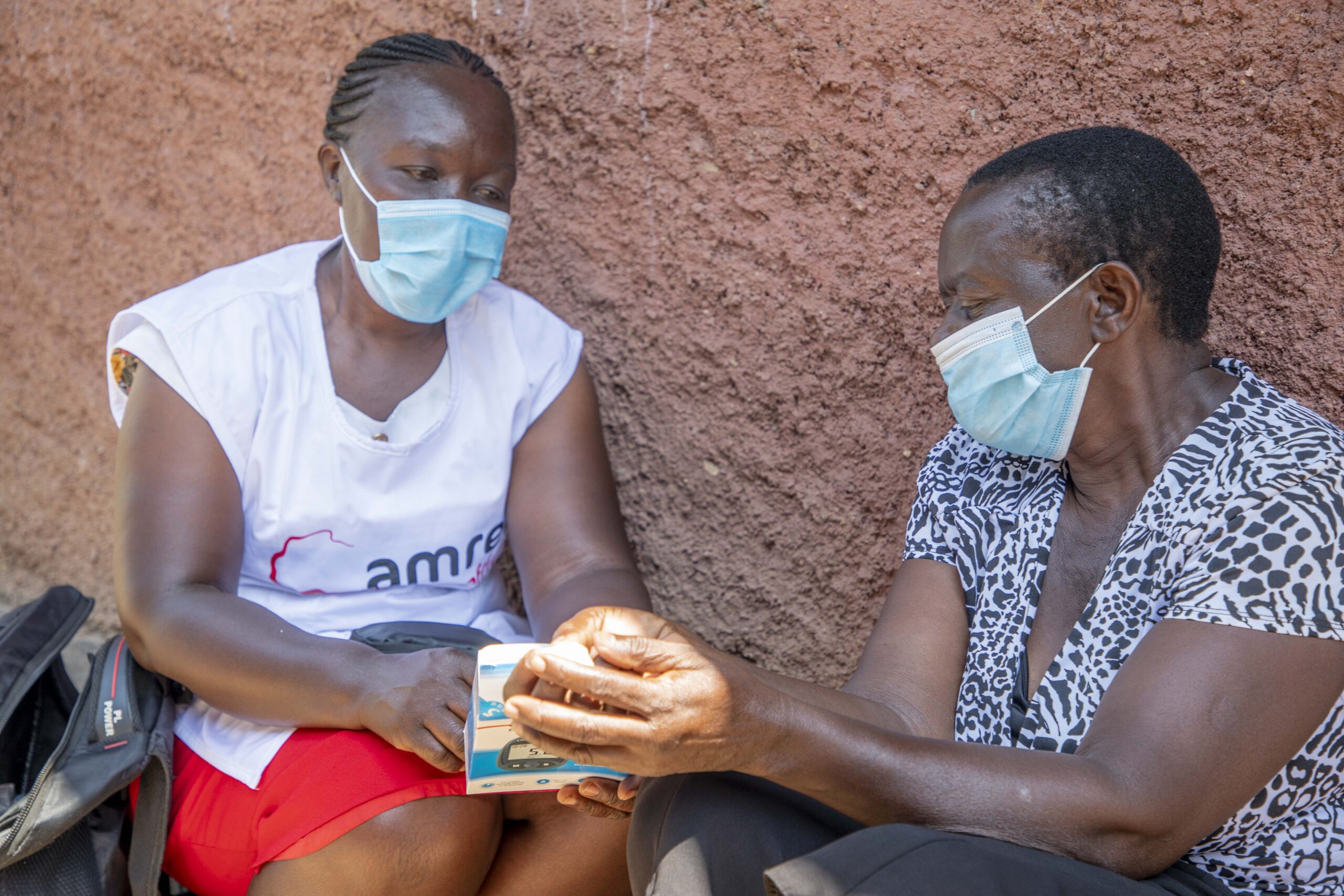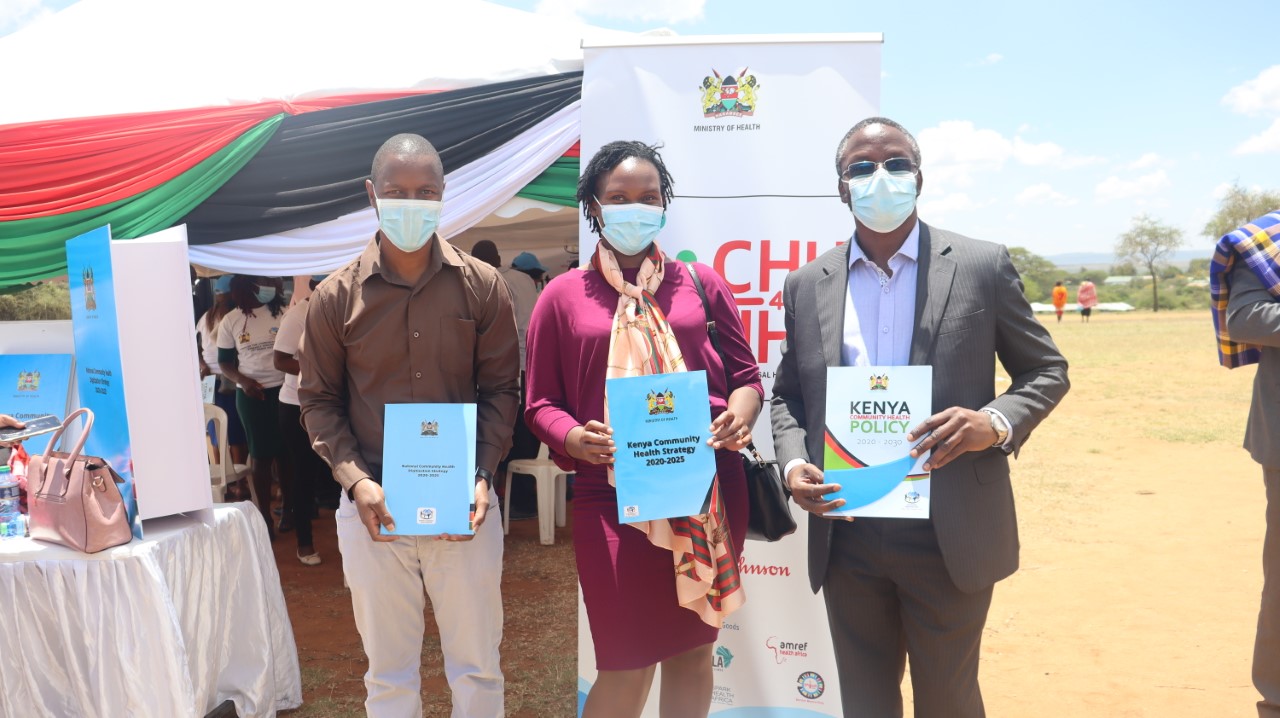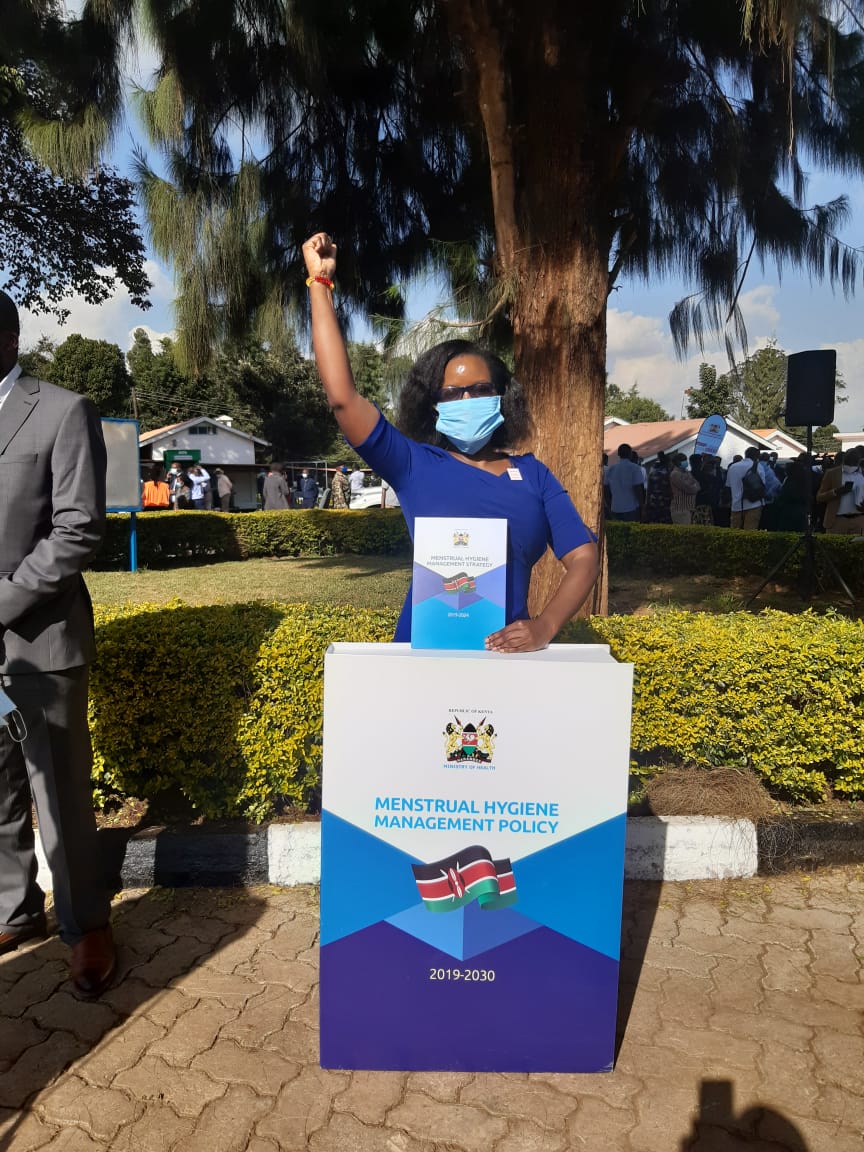Unusual Partnerships: Rangers and Scouts at the Frontline of Improving Maternal and Child Health
Friday, 15 November, 2019

“When a woman dies during pregnancy or child birth, it is considered a bad omen and the community does not support any burial rights or conversations regarding the death. It is also believed that a woman who loses her child during pregnancy or child birth is weak and an object of bad luck,” explains Josephine Lenasaya, speaking about some of the myths surrounding maternal and infant deaths in Samburu County.
Josephine, who works as a radio operator at the Kalama Conservancy, borrows heavily from her day-to-day work as she advocates for family planning, reproductive, maternal, new born, child and adolescent health (FP/RMNCAH) services.
Her work involves coordinating rescue teams tracking wildlife or poachers in the area. The Grévy’s Zebra is one of the exotic zebra species dying in the conservancy. Although rangers in the conservancy are trained to protect all wildlife, flagship species such as the Grévy’s Zebra receive special attention. When the Grévy’s Zebra is about to give birth, it seeks shelter in homesteads, away from predators such as the hyena until its colt is strong enough to fend for itself.
“This is the example I use when sharing knowledge and information on the importance of mothers accessing and utilising maternal health services. The loibor kurum (Grévy’s Zebra) protects its unborn baby by seeking shelter in the communities’ homes similar to why all pregnant women should seek antenatal, delivery and postnatal services at a health facility,” says Josephine.
During community gatherings, Josephine and her colleagues explain to men and women that there are health workers trained to diagnose and offer lifesaving treatment to women and their children at the health facility. To demystify the cultural beliefs surrounding maternal and perinatal deaths and miscarriages, the rangers sensitise women on how regular screening during pregnancy can detect and prevent complications such as hypertension and pregnancy diabetes; both of which can dramatically affect the growth and development of the foetus.
Best nutrition and important vitamins
There are certain foods that should not be consumed by a pregnant woman including uncooked meat and unpasteurized milk, which contain proteins and enzymes that are dangerous to a developing foetus. During health sessions with women peer groups, Josephine emphasises on the need for proper cooking of all meats and family consumption of healthy diets including fruits and vegetables. She educates pregnant women about prenatal vitamins which play a big part in the health of their children and the additional key nutrients found in folic acid and pregnancy multivitamins which help support the baby’s development and prevention anaemia.
Revitalized lands
In many conservancies and much of northern Kenya, poorly planned grazing by domestic livestock has had a devastating impact on the landscape and led to constant migration of the pastoralists in the rangelands in search of water and green pastures. To curb this, rangers have been trained to empower the communities living within conservancies on rangeland management. This includes allowing land to rest for four months without grazing and bunching of livestock (bringing large herds together in one place for limited periods to allow over grazed land to revitalize).
The nomadic community is characterized by patriarchy that deters women from making independent decisions including when and how many children to give birth to.
“Allowing land to revitalize over time echoes the recuperation period of a woman’s body after delivery. We have been sensitising men on the importance of child spacing despite the cultural belief that women are reproduction vessels. Spacing births at least two years apart has proven to improve birth outcomes and the survival of infants,” opines Joseph Lesooto, a ranger and Chairman of Kalama Conservancy Rangers Committee.
“The same way the pastoralists prioritize the wellbeing of their animals should be the same way they safeguard the health of mothers and children,” Joseph adds.
Josephine and Joseph are among the rangers trained by the USAID funded Afya Timiza project with the aim of increasing access and equitable utilisation of family planning, reproductive, maternal, new born, child and adolescent health (FP/RMNCAH) services for the communities living within conservancies. The project trained a total of 25 rangers and scouts from seven conservancies (Namnyak, Sarara, Kalama, Westaget, Ngilai, Naruon and Lreteti) in Samburu East.
To improve health outcomes for communities living within the conservancies in Samburu East, Afya Timiza partnered with the Northern Rangeland Trust through the USAID Partners for Resilience and Economic Growth (PREG) platform. The partnership identified rangers and scouts who volunteered to be trained on FP/RMNCAH technical modules and share knowledge and information with the communities. The rangers were provided with audio and visual tools that contain the health messages to support them in disseminating the information. They also offer counselling and referral services.
“One of the guiding principles of a ranger is discipline which goes hand-in-hand with the commitment to serve the community. When on duty, I also act as an intermediary between the community and nearby health facilities for referrals and emergency rescue cases. In a day’s work I rescue wildlife and save the lives of mothers and children,” concludes Josephine.
Amref Health Africa teams up with African communities to create lasting health change.







